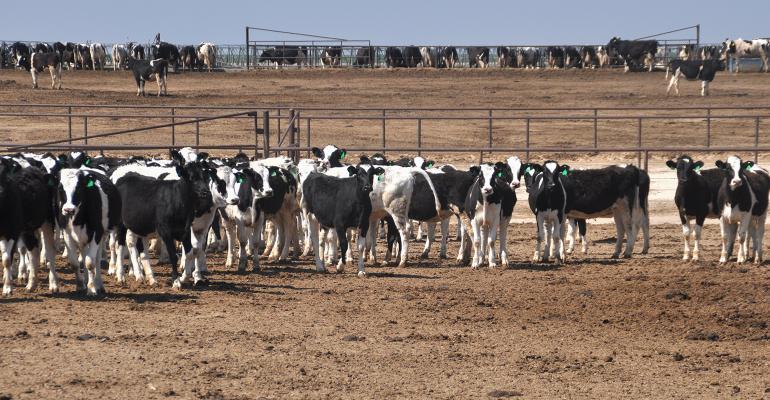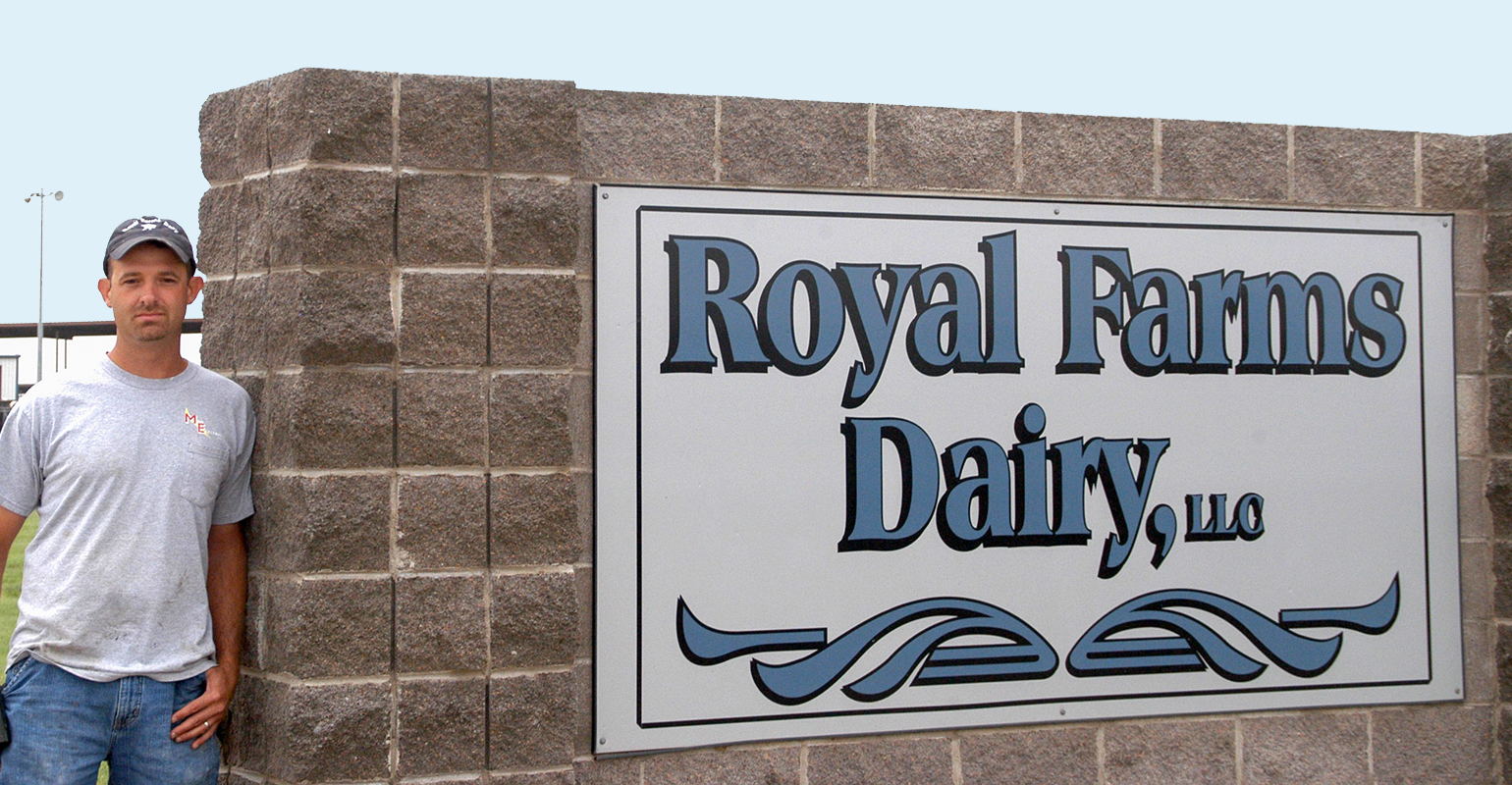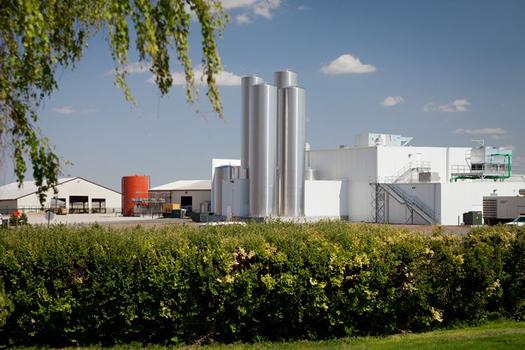Since late 1990s, large-scale dairy farms have found their place in the economic fabric of western Kansas.
-By P.J. Griekspoor, Kansas Farmer
Back in the late 1990s, a few visionary people in western Kansas saw a future for the region as a prime location for large dairy farms.
In the two decades since that effort began, Kansas has become one of the fastest-growing dairy states in the nation.
The growth has been fueled by the arrival of large-scale dairy operations, primarily in western Kansas. Milk production has doubled since 1994 and grown more than 25% in the last five years.
There are now 290 dairies in the state, milking 154,000 cows. Milk production was valued at more than $532 million in 2016, according to figures from the National Agricultural Statistics Service.
Back in 1997, when the industry was just getting started, there were only six dairies in the state with more than 1,000 cows.
Most of the state’s farms were small by today’s standards, and there were more of them. Farms milking between 50 and 99 cows, for example, totaled 374, more than the total dairies of all sizes today.
By the Census of Agriculture of 2002, there were 19 dairy farms with more than 1,000 cows, and the total cows being milked had risen to 87,295. Farmers milking between 50 and 99 cows had fallen to 210.
Five years later, the census of 2007 showed 20 dairies with more than 1,000 cows and two new categories of size. There were six farms with 1,000 to 2,499 cows and 14 with more than 2,500.
Growth continued in the five years before a new census in 2102, which revealed 15 dairies with more than 2,500 cows.
Billy Brown, marketing manager for the dairy division of the Kansas Department of Agriculture, says that the infrastructure for continued growth is falling into place. There are now three processing plants either on line or under construction in western Kansas, all of them working with evaporated or dry milk in order to capture and reuse water.
“These plants ensure that there are more markets for Kansas-produced milk,” Brown says.
The first, an evaporative plant at McCarty Farms in Rexford, processes milk from the family’s four dairies for sale under contract to Dannon yogurt.
The second, an evaporative plant in Hugoton, sells milk to cheese factories.
The third, set to come on line in Garden City by the end of year, will produce dried milk products for sale around the world. That plant is by far the biggest of the three and is owned by the DFA Co-op, which markets the preponderance of milk produced in Kansas.
With the completion of that plant, the volume of Kansas-produced milk being processed in Kansas will jump from about 24% today to more than 75%.
The plant in Garden City will have the capacity to take in 80 truckloads of milk every day.
All in all, the industry has invested more than $250 million in new milk processing capacity in Kansas since 2011.
Royal Dairy among the pioneers of southwest Kansas
Kyle Averhoff is manager of the Royal Dairy near Garden City, which is owned by Irsik Farms. It was among the first handful of big dairies when it opened in November of 2000.
“Southwest Kansas is full of all types of agribusiness and agriculture production, and dairy has been a really good fit for the geography of the region,” Averhoff says. “There is abundant land mass for dairies and for growing the forage and grain to supply them. And our dairies have proved to be good stewards of the land and of our diminishing water resources.”
Averhoff, like Royal Dairy founder Steve Irsik, sees the potential for livestock to provide a higher value use of available water resources.
 Royal reuses every drop of water in the operation up to three or four times before finally applying affluent water to irrigated crops.
Royal reuses every drop of water in the operation up to three or four times before finally applying affluent water to irrigated crops.
Royal’s founder, Steve Irsik, was among the first business leaders to see dairy as a promising economic development resource for the region.
He says back when he was just getting Royal Dairy started, he had hopes that the industry would find ample room to grow in western Kansas. He says it is “pretty amazing” to see where it has come in the 17 years since then.
“It has been a success beyond my wildest dreams,” he says. “We had the growing pains, the weather issues, the learning curve, the challenge of markets, but we have arrived to the goal of a mature industry that I believe will be an important part of western Kansas for decades to come.”
He says he is especially happy to see a major DFA dry-milk processing plant coming to Garden City and the nearby market it provides for southwest Kansas dairies, most of which are DFA members.
Irsik Farms added a second dairy, Noble Dairy near Garden City, in 2014.
McCarty Family Farms a growing dairy story
Tom and Judy McCarty, founders of the McCarty Family Farms enterprise in northwest Kansas and southwest Nebraska, wanted a place that offered them room to grow, something they couldn’t gain on the family farm where Tom grew up in Pennsylvania.
The McCartys moved to Kansas in 1999, inspired by the wide-open spaces of the Kansas High Plains, which offered plenty of room to expand an operation that could include all four of their sons.
With help from the Kansas Department of Agriculture, Kansas State University and local economic development agencies, they bought a farm and built their first dairy from the ground up in Rexford. In 2000, McCarty Family Farms’ first dairy in Kansas was milking about 2,000 cows.
Their success in Rexford and the contribution of the dairy to the economy of the local community, where their workers’ families were credited with saving the local school, led to a request from Bird City for them to expand and build a dairy there.
In 2008, the Bird City location opened with 2,700 cows, and in 2011, they bought, renovated and reopened a shuttered Scott City dairy.
In 2012, looking for a way to stabilize margins in an unstable industry, the McCartys entered a contract with Dannon Yogurt to supply milk for its operations in Fort Worth, Texas, and built an evaporative plant at the Rexford location. A bonus to their operation was the ability to reclaim the water from the process, allowing them to add 500 cows to the dairy with no additional water use.
Their fourth location, in Beaver City, Neb., opened in 2014 and milks about 1,500 cows.
True to their dreams, all four of their sons and their families have moved to Kansas and are part of the family operations.